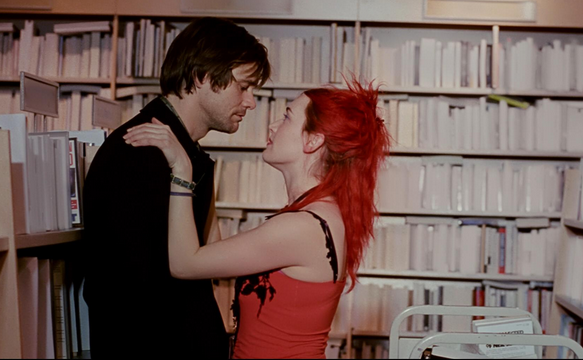When you watch what is arguably Charlie Kaufman’s screenwriting masterpiece (though, if you’re an aspiring screenwriter, you’re inclined to be partial to Adaptation) as a, shall we say, more youthful person, you can only see it from a romantic viewpoint–not yet understanding that the motives behind Clementine (Kate Winslet) and Joel’s (Jim Carrey) decision to rid their brains of the memory of one another is anything but idyllic, so much as the only means of self-preservation.
As you approach the end of a disastrous relationship at the end of your twenties or beginning of your thirties, it only becomes more impossible to endure an emotional bounce-back from the failure. The ease with which you’re able to move on and forget evaporates, instead turning into an unavoidable sea of unwanted memories highlighting the times when you were actually happy–and how that’s all over now. Already when Clementine and Joel first meet, they’re both jaded from their respective last relationship, reluctant to jump into another one with each other. And yet, their attraction is too strong to ignore the inevitable: yet another domestic foray.
Like so many couples who are together for a few years, the things that Clementine and Joel initially enjoyed about one another become the qualities they eventually grow to despise, which is what prompts Clementine to turn to Lacuna, a private medical firm specializing in memory erasure. Lacuna, incidentally, means an unfilled space or gap, in this case, referring to the mind. When Joel discovers what Clementine has done, he’s prompted to do the same–how else could he possibly recover from his heartache knowing that Clementine isn’t suffering at all?
His mental attachment to Clementine, unfortunately for his heart, proves too strong to destroy the memories so easily, as different parts of his brain work to hide the recollections from the “technicians” working to wipe his proverbial slate clean. To him, the reminiscences are painful, yet necessary–they’re all he has left of Clementine. But to hold on to her is to hold on to the agony of loss, something that a post-twenties person is less equipped to handle in their ever-increasing state of fragility. Hence, since Lacuna isn’t yet real, ripping your mind apart via, say, a lobotomy or increased drug use sounds perfectly acceptable when considering the difficulties of coping with love gone wrong.






















